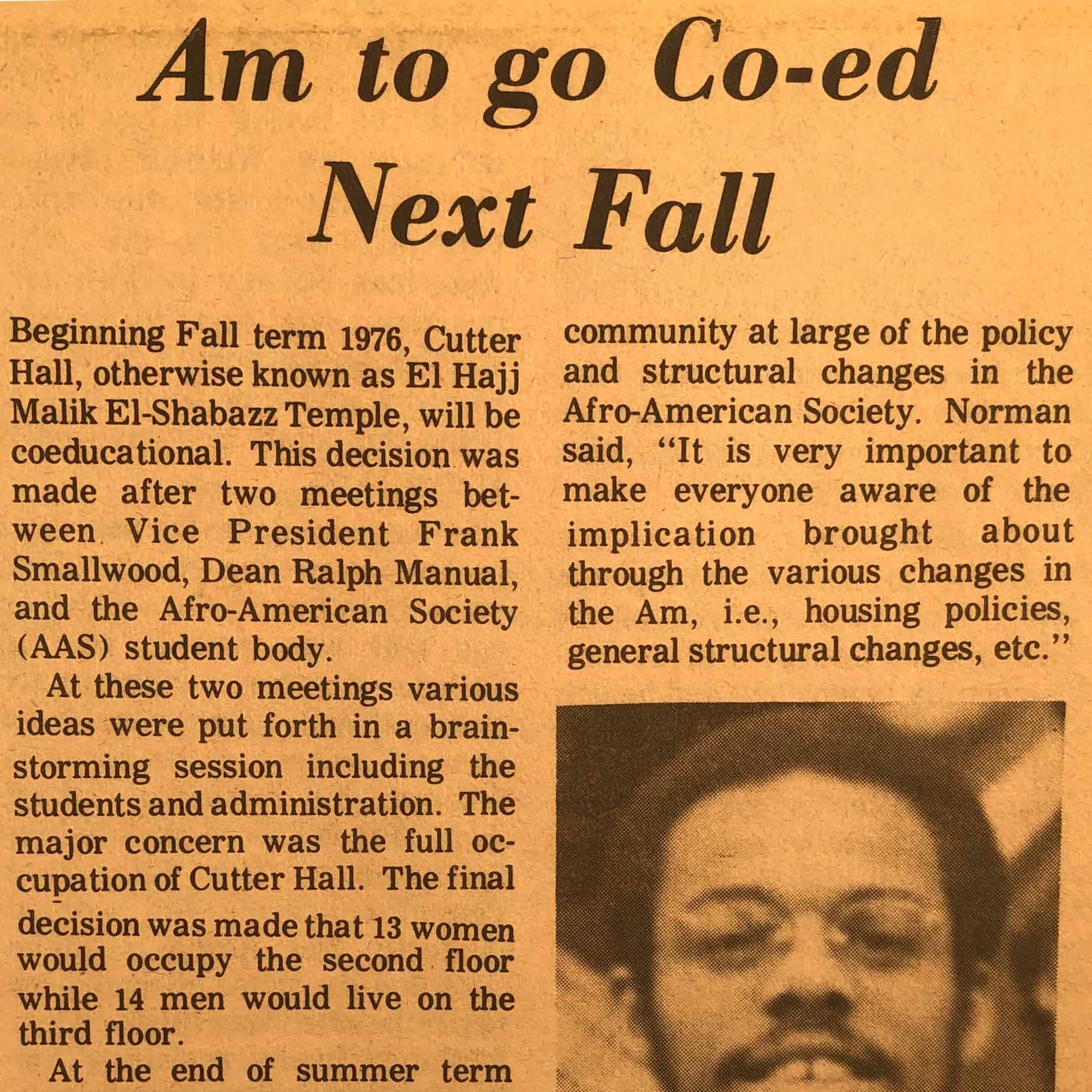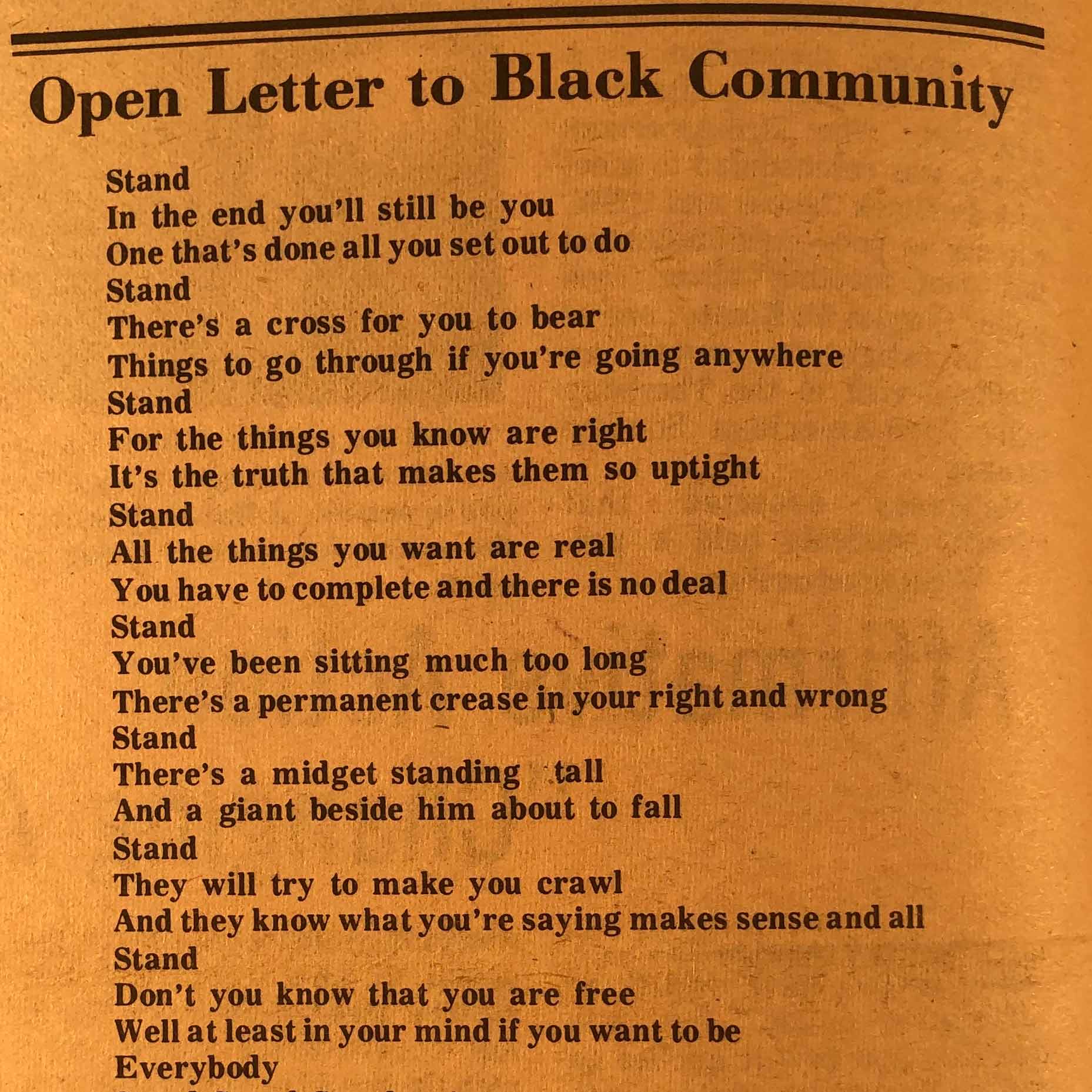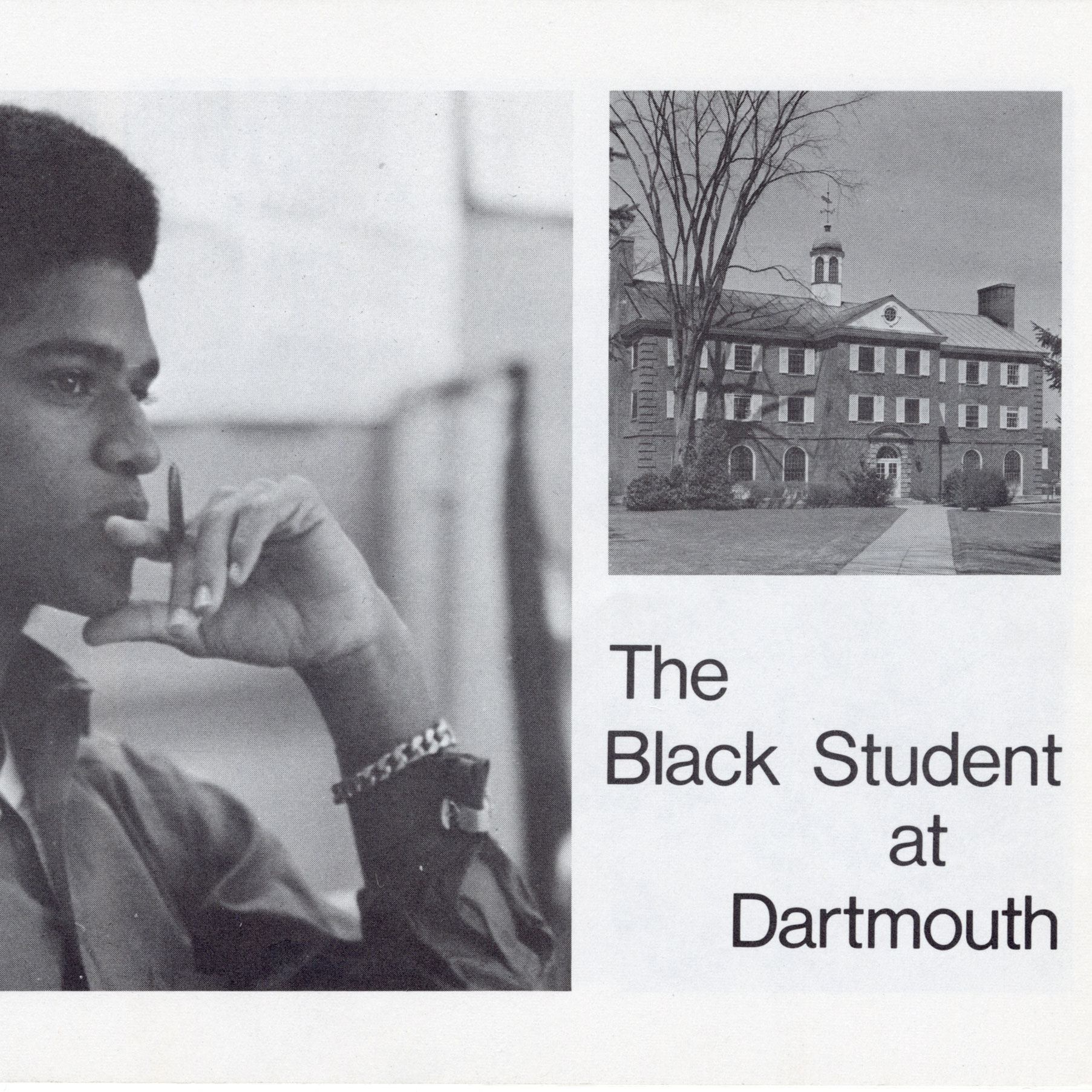-

This article reports on the decision made by members of Dartmouth’s Afro-American Society, Vice President Frank Smallwood, and Dean Ralph Manual to open 13 housing slots to women in the El Hajj Malik El-Shabazz Temple beginning in the Fall 1976, three years after the College became co-educational.
-

This poem in the Afro-American Society publication Black Praxis calls for members of Dartmouth’s Black community to stand in solidarity with one another and for what is morally right in the fight for equality. The poem's co-authors Eileen Cave, Monica Hargrove, and Judi Redding also collaborated on the July 1975 publication “Institutional Racism and Student Life at Dartmouth,” known colloquially amongst Dartmouth administrators as the “Redding Report.”
-

This collage from the Afro-American Society publication Black Praxis depicts images of Black students at Dartmouth interspersed with words from a poem by Cameroonian poet Philombe. “Civilization,” originally published in the book The Militant Black Writer in Africa and the United States, critiques colonization in Africa by underscoring the irony of Europeans seeking to “civilize” African peoples through assimilation into cultures ripe with vice and evil.
-

Compiled by Dartmouth undergraduates Albert Knight, A.J. Lonian, Bill Oldham, and George Riley, this informational pamphlet was used to recruit more Black students to Dartmouth College. In the publication, Black students are depicted in both academic and extracurricular settings and give testimonies about their college experiences.




